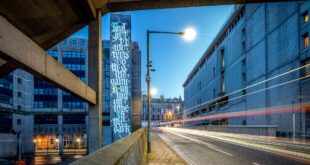UK is experiencing a new variety of Christmas chaos, this time not Covid-related but brought about by public workers’ strikes. On top of the freezing temperatures and the cost of energy, in an effort to cause maximum inconvenience and instability, the UK’s powerful workers unions seem to have coordinated their industrial action around Christmas. For the first time in NHS history nurses have begun two days of walkouts demanding a 19% pay increase, ambulances workers are also striking on two different days; domestic and international travel will be severely disrupted as bus, rail, highway workers, border force and baggage handlers will be striking over several simultaneous days over the holidays; Royal Mail strike action has been ongoing and will continue up to the two days before Christmas, and driving examiners have walked out from 13 December until 7 January 2023. All workers are asking for pay in line with inflation.
This means that NHS hospitals will be short staffed, operations will be delayed, and patient backlogs will build up—all good ammunition for the Labour Party against the government; commuters will not get to work, which is bad for the economy; roads will be hazardous; airports will be congested; and passengers have been advised to cancel travel plans over the holidays; retail and hospitality will suffer—Christmas “parties” provide a large share of pubs and restaurants’ income at this time of year and many are being cancelled again; families are having trouble getting together; the strikes will stymie Christmas cards and deliveries, already retailers are saying do not shop online; customers must buy in-store as gifts posted will not reach by the 25th.
All workers chant the same refrain “this is our last resort”, “we have no other option”, and “we can’t afford to strike”. Steve Barclay the Health Secretary said “If everyone in the public sector had a pay rise in line with inflation it would cost an extra £ 28 billion, an extra £1,000 per household”, this is a reminder of where government money comes from… the taxpayer. Unions would like the government to raise taxes, union leaders are aggressively confronting the government about this and they are supported by the social injustice petitioners. The rest of the public’s patience is wearing thin; they just want things to operate smoothly which is why they elect governments. Surprisingly the UK does not have a collective public sector independent pay review body, along the lines of Ofsted or Ofcom that could regulate fair pay across sectors and have avoided the present situation.
The UK does provide a secretariat to eight pay review bodies for the armed forces, doctors and dentists, the NHS, prison services, teachers, the National Crime Agency, the police and a senior salaries review body which provides advice on the pay of senior civil servants, the judiciary, senior officers of the armed forces, certain senior managers in the NHS, police and crime commissioners and chief police officers. The Royal College of Nursing Chief Executive says the government NHS pay review body is not independent.
Rishi Sunak is shouldering the burden of these strikes, but the policies they reflect are not of his making. Sunak says the government has been reasonable in its public sector pay offers (nurses received +3% in 2021 during the pay freeze, and rail workers were offered a 5% pay rise this year plus 4% in 2023 a total of 9%), now the government is working on ‘tough new laws’ to protect folks from future strike action. The government has said that military personnel and civil servants are being trained to step in as a contingency measure and limit disruption. Labour Leader Sir Keir Starmer has refused to condemn the strikes saying the NHS strikes are a ‘badge of shame’ and his deputy Angela Rayner is almost emphatic with the picket lines. Labour would enjoy a return to the flying pickets and militant strikes of the 1970’s, as recently as 2019 Labour boasted that they have worked together with the rail union RMT to ‘bring down’ the government.
Folks could be forgiven for suspecting the months long winter strikes across most public sectors are an insidious attack devised by the opposition and the unions to further destabilise the Conservative Party. As mentioned in these reports this year the Conservative party is far from united, there is controversy over upcoming boundary changes, and voters are required from 2023 to show photo ID before being issued a ballot paper in polling stations at UK local and parliamentary elections. Tory MPs are especially divided on the subject of immigration, the Asylum Seekers (for removal to safe countries) Bill that was rejected on 14th shows the division within the party, 69 Tories (out of a total of 356 Tory MPs) voted for the Bill with only 4 against the Bill, that would force the Home Office to deport asylum seekers regardless of the ECHR.
In other news following the disgraceful scenes on 16 October outside the Chinese Manchester Consulate where Bob Chan, a pro-democracy Hong Kong protester was beaten up, dragged and hurt by Chinese officials, it seems China has recalled the six concerned officials. China has been unwilling to waive their diplomatic immunity and allow them to be questioned by the Greater Manchester police before the deadline given by the Foreign Office expired. The Consul General Zheng Xiyuan is one of the six who have left the country. James Cleverly, Foreign Secretary said “We expect a certain standard of behaviour from all foreign diplomats and consular staff, regardless of their privileges and immunities. The violence at China’s consulate in Manchester was unacceptable.” Alicia Kearns, Chair of the Foreign Affairs Select Committee said, “The Foreign Office must now declare those who have fled persona non grata, and make clear they are never again welcome in the UK.” The Chinese Embassy in U.K. said Zheng Xiyuan had come to the end of his Consular General term and was returning as planned, now China has urged the UK to stop sheltering anti-China rioters who took part in a violent disruption against the Chinese Consulate General in Manchester, and to fulfil obligations to protect Chinese consulate premises and personnel.
Britain’s inflation rate dipped from a four-decade high to 10.7% and The Bank of England raised interest rates to 3.5%.
Source link


